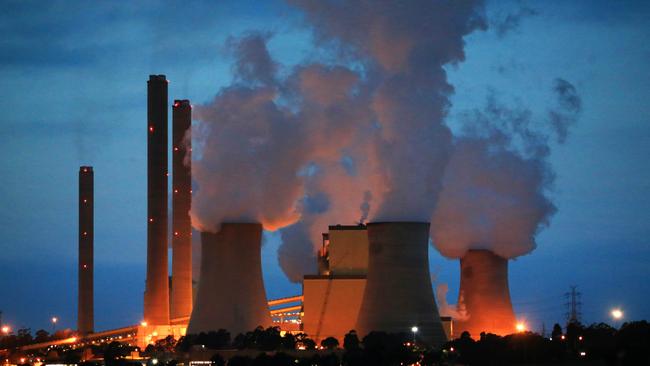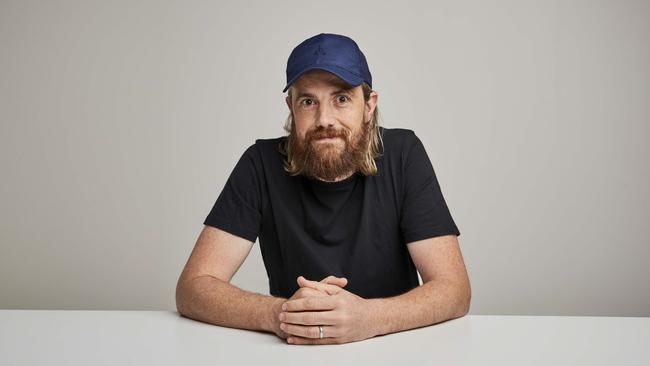Brookfield, Mike Cannon-Brookes quit AGL race after energy giant rejects new $9bn bid
Mike Cannon-Brookes and his consortium partner Brookfield have quit a takeover battle for AGL Energy after the power giant rejected a new $9bn bid.

Mike Cannon-Brookes and his consortium partner Brookfield have sensationally quit a high-profile takeover battle for AGL Energy after the power giant rejected a second buyout bid valuing it at $9bn.
As revealed by The Australian on Sunday night, the tech billionaire and his Canadian partner submitted a $8.25 a share bid over the weekend, representing a 75c per share increase on the original $7.50 pitch.
However, AGL’s board quickly resolved to rebuff the new tilt, triggering the collapse of the bid consortium comprising one of Australia’s richest men and the Canadian private investment heavyweight.
AGL said on Monday the $8.25 offer was “still well below both the fair value of the company on a change of control basis and relative to the expected value of the proposed demerger” and was not in the best interests of shareholders.
The company will continue to press ahead with a controversial move to split the company with a shareholder vote on a demerger to take place in June.
“The revised unsolicited proposal continues to ignore the opportunity that AGL Energy shareholders have through our proposed demerger to realise potential future value,” AGL chairman Peter Botten said.
“The proposed demerger will be a catalyst for the potential realisation of shareholder value. It will create two industry leading companies with distinct value propositions. It will allow each business to be valued separately and more positively by the market on the basis of their own specific business fundamentals.”
The consortium “is putting our pens down with great sadness”, Mr Cannon-Brookes tweeted on Sunday night.
“This weekend, the board rejected our raised offer of $8.25, 46 per cent more than the price of $5.55 about 90 days ago. Our path was the world’s biggest decarbonisation project. The board are proceeding with their demerger path. This path is a terrible outcome for shareholders, taxpayers, customers, Australia and the planet we all share. Shareholders now vote on that path.”
The Brookfield-Grok consortium looking to take private & transform AGL is putting our pens down - with great sadness.
— Mike Cannon-Brookes 👨ðŸ¼â€ðŸ’»ðŸ§¢ðŸ‡¦ðŸ‡º (@mcannonbrookes) March 6, 2022
This weekend, the board rejected our raised offer of $8.25. 46% more than the price of $5.55 about 90 days ago 🧵 (1/3) pic.twitter.com/c5KYwGozDo
Still, AGL disputed the value of the increased bid and said it was only at a 15 per cent premium to its closing price on February 18, the final trading day before the consortium’s first $7.50 a share bid was revealed.
Shareholders in the 180-year-old electricity company are set to vote on a plan to split it into two companies: a green retailer named AGL Australia seeking to be fully carbon-neutral by 2040, and a coal-dominated generator, Accel Energy, targeting net-zero emissions by 2047.
The company’s shares closed at $7.43 on Friday.
AGL appeared to be unimpressed by several features of the second bid noting it included a requirement that it effectively commit now to recommend the higher offer while the Brookfield consortium also issued a draft confidentiality access deed which covered exclusivity and cost reimbursement obligations for AGL.
“We have defined distinct dividend policies and capital structures for each company that will support both future growth and appropriate returns to shareholders, as both organisations pursue their commitment to responsibly decarbonise without impacting energy reliability and affordability,” Mr Botten said.
Brookfield was funding 80 per cent of the overall bid with Mr Cannon-Brookes the balance.
The withdrawal of their combined offer will spark questions over the unusual tie-up and whether the billionaire’s blaze of interviews to publicise the deal was at odds with the more conservative approach normally favoured by Brookfield.
It also represents a rare misstep by the co-founder of tech powerhouse Atlassian, who was using his family investment vehicle, Grok Ventures, for the AGL deal, which he described as the single biggest decarbonisation project in the world. Mr Cannon-Brookes led a bold plan to reinvent AGL by shutting its coal plants early – by 2030 – and turning the power giant into a renewable-focused energy retailer.
His scheme to quit coal within just eight years and plough billions into replacement renewable energy and storage generation was lauded by green energy developers and climate-conscious investors, but the billionaire had yet to detail the feasibility of the plan and what it would mean for household bills.
Sources said Mr Cannon-Brookes was not involved in the negotiations for the latest bid, even though he remained a partner, signalling a change of approach since the first bid was rejected two weeks ago.

While Mr Cannon-Brookes had committed to AGL quitting coal by 2030 if the bid was successful, Brookfield appeared to take a slightly more conservative view, saying it would quit the fossil fuel once replacement generation was in place.
Brookfield is best known in Australia for buying private hospital operator Healthscope and freight firm Asciano, but is now expected to watch AGL’s plans from the sidelines, sources say.
“While the consortium is pens down, we continue to believe the demerger is not in the best interests of shareholders, the country or the planet,” a source told The Australian.
Mr Cannon-Brookes and Brookfield planned to shut AGL’s coal plants by 2030, meaning Victoria’s Loy Yang B station would close 15 years earlier than currently scheduled in 2045 and Bayswater in NSW by 2035.
Bayswater produces enough power for two million Australian households and combined with AGL’s Liddell station, set to close next summer, supplies 35 per cent of NSW power.
Loy Yang A generates 30 per cent of Victoria’s power requirements and its coal mine also supplies Loy Yang B, owned by Alinta and set to close in 2047.
The investment duo of Mr Cannon-Brookes and Brookfield had pledged $20bn of capital to fund the transition of AGL’s generation fleet, consistent with the 1.5 degree target of the Paris climate accord, with a scheme to replace 7GW of capacity through “a build-out” of at least 8GW of clean energy and storage.
However, AGL had said it was an unworkable plan and the consortium would not be able to roll out $20bn of investment quickly enough to replace the lost baseload capacity.
AGL had said the consortium would need to boost its takeover bid by at least $1bn to be taken seriously. CEO Graeme Hunt slammed its early coal retirement plan as unfeasible.
An extra hurdle also loomed with the Morrison government likely to intervene if Mr Cannon-Brookes won control of AGL, brokers cautioned.
Treasurer Josh Frydenberg ramped up claims that energy prices would rise if coal-fired power stations closed early, calling it an “indisputable fact” in reference to the closure of Victoria‘s Hazelwood plant in 2017.
The initial offer was 5 per cent higher than AGL’s closing share price on February 18, but the power giant’s boss said a 30-40 per cent premium was needed.







To join the conversation, please log in. Don't have an account? Register
Join the conversation, you are commenting as Logout